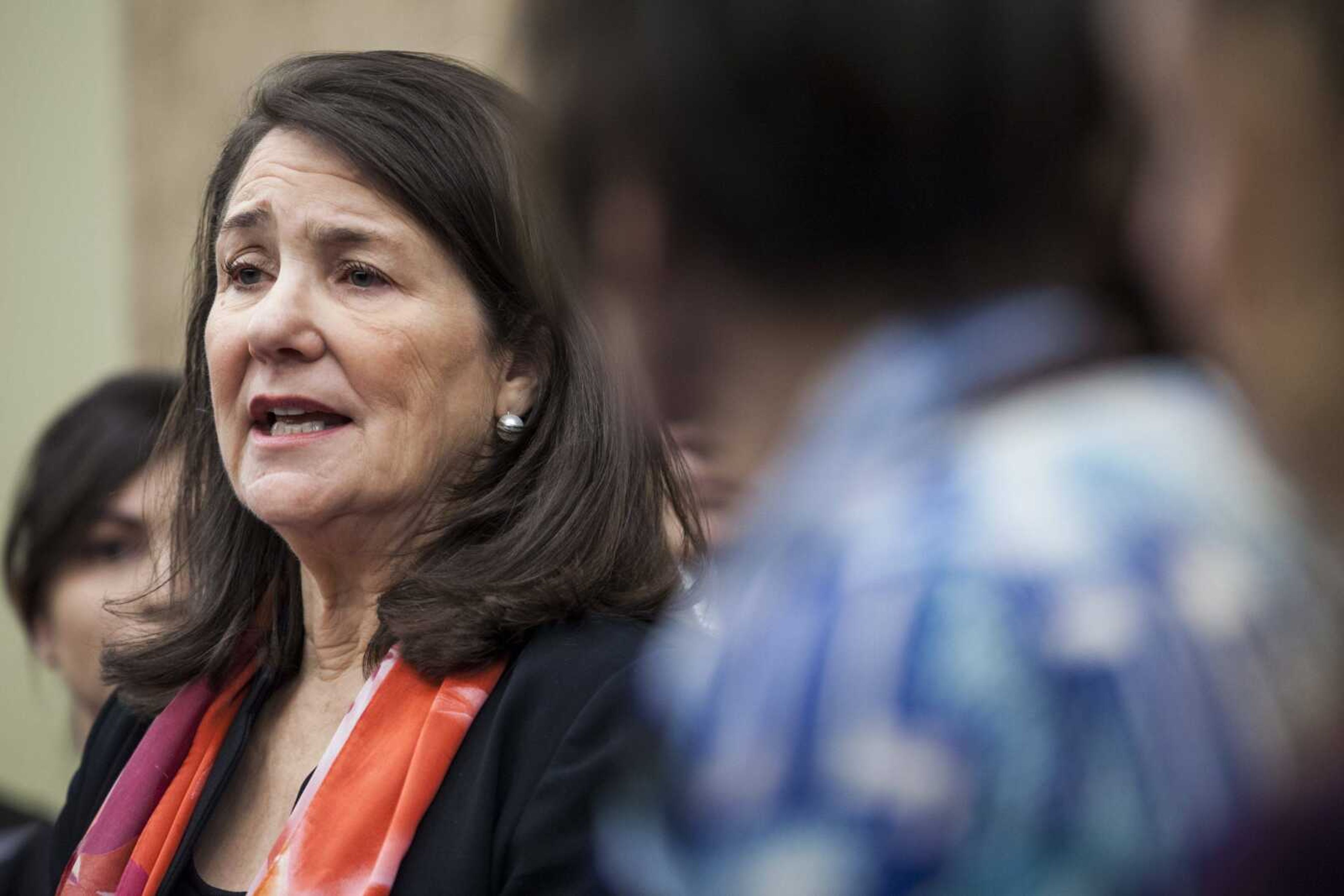Trump remaking federal policy on women's reproductive health
WASHINGTON -- Step by methodical step, the Trump administration is remaking government policy on reproductive health -- moving to limit access to birth control and abortion and bolstering abstinence-only sex education. Social and religious conservatives praise the administration for promoting "a culture of life." But women's-rights activists and some medical experts view the multi-pronged changes as a dangerous ideological shift that could increase unintended pregnancies and abortions...
WASHINGTON -- Step by methodical step, the Trump administration is remaking government policy on reproductive health -- moving to limit access to birth control and abortion and bolstering abstinence-only sex education.
Social and religious conservatives praise the administration for promoting "a culture of life." But women's-rights activists and some medical experts view the multi-pronged changes as a dangerous ideological shift that could increase unintended pregnancies and abortions.
"When I ran for office, I pledged to stand for life," President Donald Trump said in a recent speech to the Susan B. Anthony List, which backs political candidates who oppose abortion. "And as president, that's exactly what I've done. And I have kept my promise, and I think everybody here understands that fully."
Most of the changes involve rules and regulations under the administration's direct control, such as a proposal to forbid federally funded family planning clinics from referring women for abortions and separately allowing more employers who cite moral or religious reasons to opt out of no-cost birth control for women workers.
Trump also is appointing numerous new federal judges endorsed by anti-abortion groups.
Justice Neil Gorsuch, the president's only appointment to the Supreme Court so far, has a sparse record on abortion, but has drawn praise from anti-abortion groups and criticism from abortion rights supporters. Unlike regulatory changes, judicial appointments cannot be reversed by a future president.
Democrats say Trump is changing policy in ways potentially disrupting access to family planning for some women.
A recently proposed rule would make major changes to Title X, the family-planning program, including banning clinics from sharing physical space and financial resources with abortion providers. Providers such as Planned Parenthood could be forced out.
"It's across the spectrum of women's health services," said Rep. Diana DeGette, D-Col. "They're proposing abstinence-only sex education -- which study after study has shown doesn't work -- restrictions to family planning and more and more restrictions to abortion."
Title X serves about 4 million low-income people, mainly women. Disruptions could affect women's access to long-acting contraceptives, such as implants and IUDs. Those are more effective than daily pills but also much more expensive up-front.
Eight professional groups representing doctors, nurses, midwives and physician assistants say the administration's Title X proposal "dangerously intrudes" on the patient-provider relationship.
"The strange thing about this is that people who want to decrease the number of abortions are taking away access to the very services that help prevent them," said Dr. Hal Lawrence, CEO of the American College of Obstetricians and Gynecologists, one of the eight groups. Among the others are the American College of Nurse-Midwives and the American Academy of Pediatrics.
The administration said it supports family planning and isn't cutting funding -- merely drawing a "bright line" between birth control and abortion. Officials say the doctor-patient relationship is protected because if a woman asks for an abortion referral, Title X doctors could offer a list of pregnancy services providers, including some who perform abortions.
Abortion is legal, but under longstanding law and regulations, taxpayer money cannot be used to pay for abortions. Planned Parenthood, a major provider of both kinds of services, can receive federal family-planning grants while separately providing abortions.
Trump's changes come at a time when U.S. rates of births overall, births to teens, and abortions are low.
"If we were seeing skyrocketing abortion rates and wildly high numbers on teen births, you could say we have a crisis, but this is just the opposite," said Kathleen Sebelius, secretary of Health and Human Services under President Barack Obama, and a supporter of abortion rights. "This is playing politics and putting people in a very precarious situation."
Connect with the Southeast Missourian Newsroom:
For corrections to this story or other insights for the editor, click here. To submit a letter to the editor, click here. To learn about the Southeast Missourian’s AI Policy, click here.










